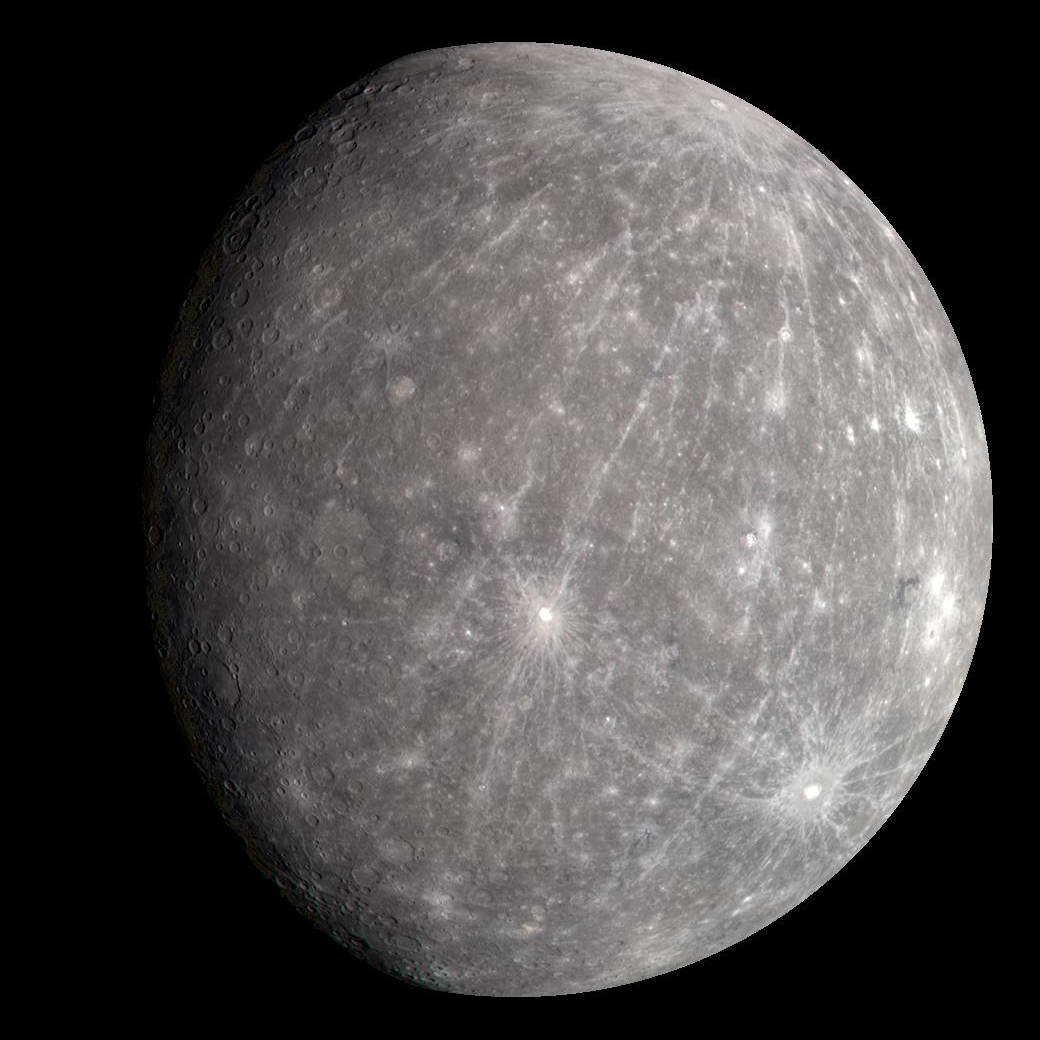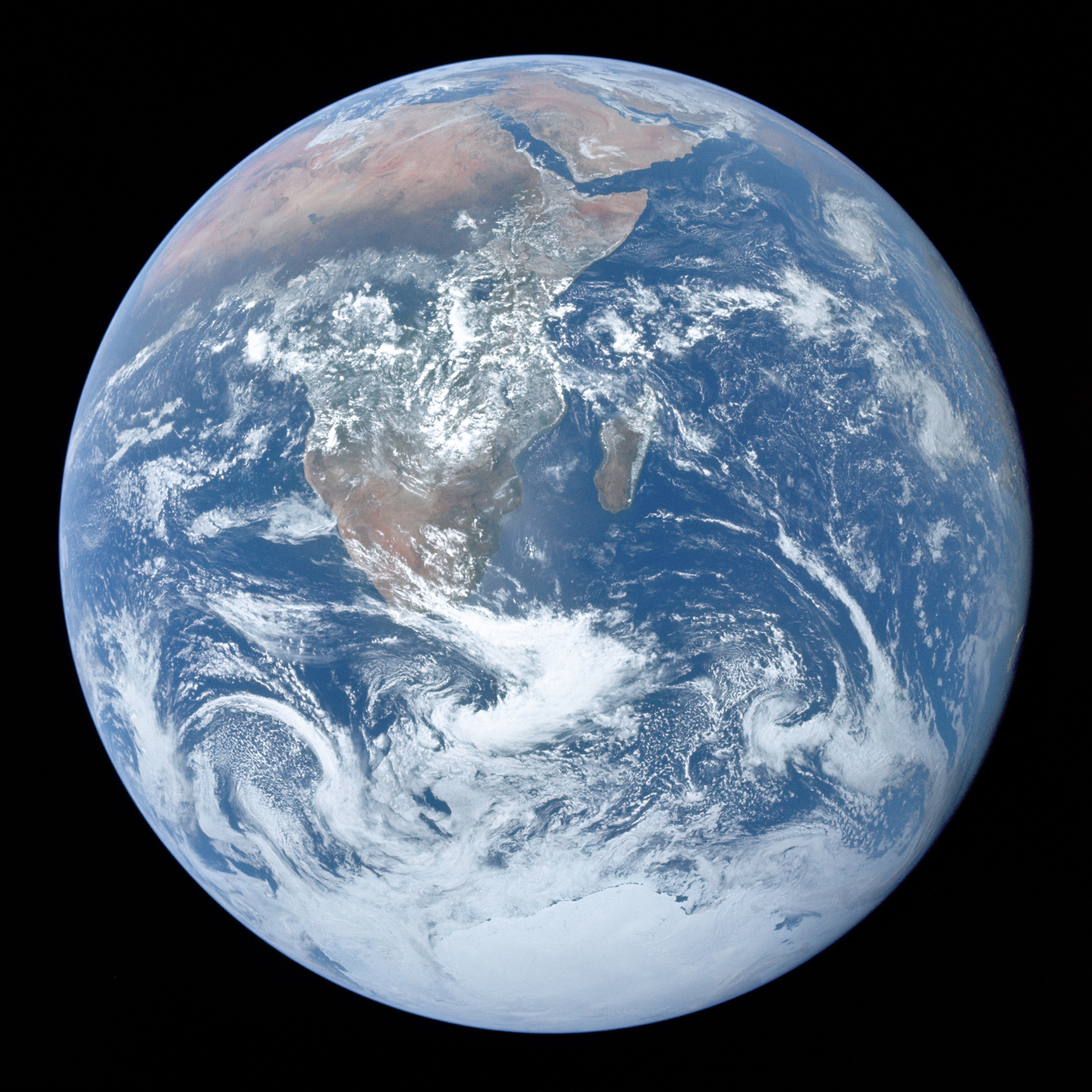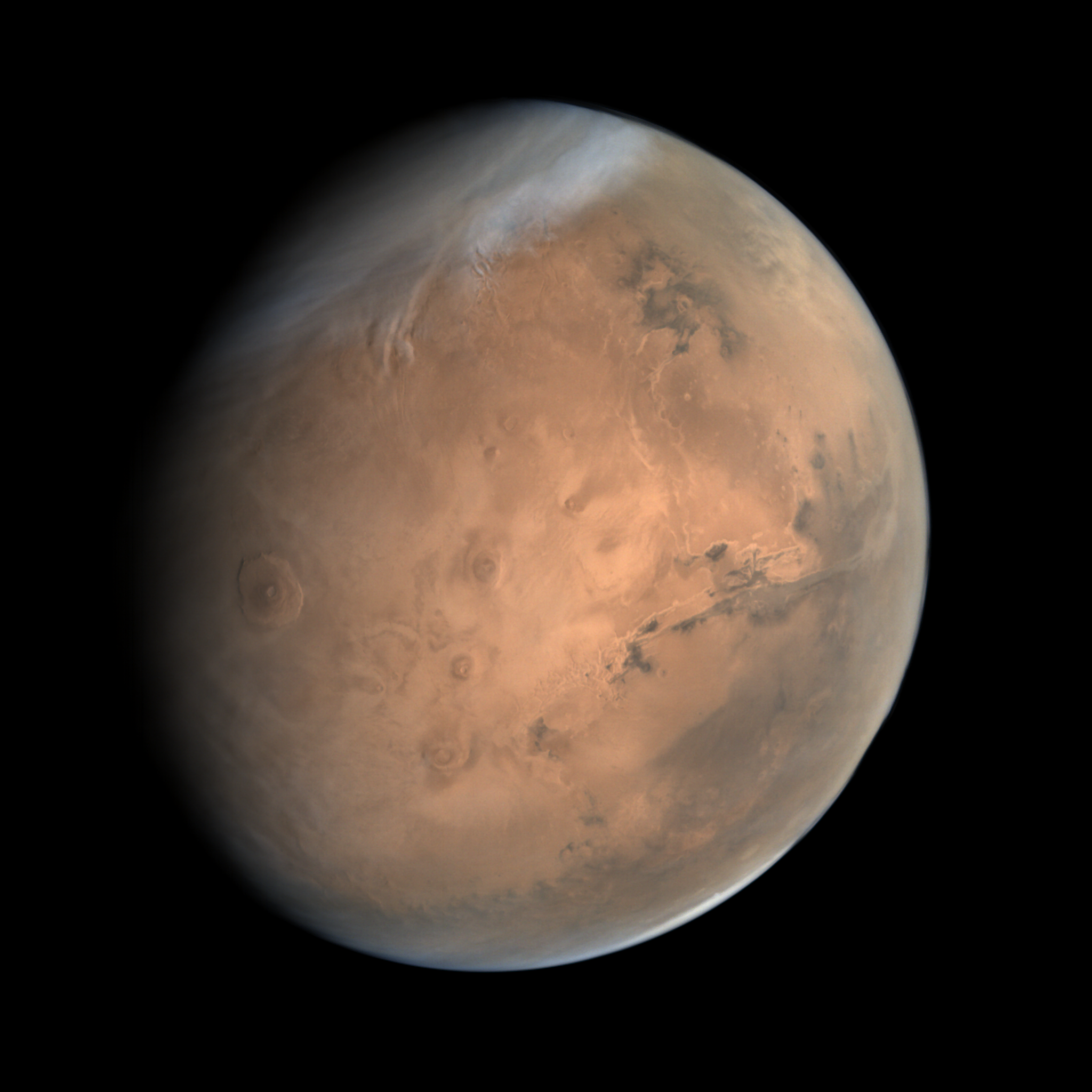Recent Astronomy News
-

Mercury
Mercury is the smallest planet in the Solar System and the closest to the Sun. Its orbit around the Sun takes 87.97 Earth days, the shortest of all the Sun's planets. It is named after the Roman god Mercurius (Mercury), god of commerce, messenger of the gods, and mediator between gods and mortals, corresponding to the Greek god Hermes (Ἑρμῆς).
-

Venus
Venus is the second planet from the Sun. It is sometimes called Earth's "sister" or "twin" planet as it is almost as large and has a similar composition. As an interior planet to Earth, Venus (like Mercury) appears in Earth's sky never far from the Sun, either as morning star or evening star. Aside from the Sun and Moon, Venus is the brightest natural object in Earth's sky, capable of casting visible shadows on Earth in dark conditions and being visible to the naked eye in broad daylight.
-

Earth
Earth is the third planet from the Sun and the only place known in the universe where life has originated and found habitability. While Earth may not contain the largest volumes of water in the Solar System, only Earth sustains liquid surface water, extending over 70.8% of the Earth with its ocean, making Earth an ocean world. Earth's polar regions currently retain most of all other water with large sheets of ice covering ocean and land, dwarfing Earth's groundwater, lakes, rivers and atmospheric water.
-

Mars
Mars is the fourth planet from the Sun and the second-smallest planet in the Solar System, larger only than Mercury. In the English language, Mars is named for the Roman god of war. Mars is a terrestrial planet with a thin atmosphere and has a crust primarily composed of elements similar to Earth's crust, as well as a core made of iron and nickel. Mars has surface features such as impact craters, valleys, dunes, and polar ice caps. Mars has two small, irregularly shaped moons, Phobos and Deimos.
-

Jupiter
Jupiter is the fifth planet from the Sun and the largest in the Solar System. It is a gas giant with a mass more than two and a half times that of all the other planets in the Solar System combined, and slightly less than one one-thousandth the mass of the Sun. Jupiter is the third brightest natural object in the Earth's night sky after the Moon and Venus, and it has been observed since prehistoric times. It was named after Jupiter, the chief deity of ancient Roman religion.